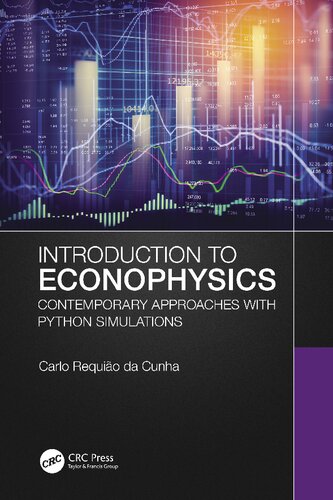

Most ebook files are in PDF format, so you can easily read them using various software such as Foxit Reader or directly on the Google Chrome browser.
Some ebook files are released by publishers in other formats such as .awz, .mobi, .epub, .fb2, etc. You may need to install specific software to read these formats on mobile/PC, such as Calibre.
Please read the tutorial at this link. https://ebooknice.com/page/post?id=faq
We offer FREE conversion to the popular formats you request; however, this may take some time. Therefore, right after payment, please email us, and we will try to provide the service as quickly as possible.
For some exceptional file formats or broken links (if any), please refrain from opening any disputes. Instead, email us first, and we will try to assist within a maximum of 6 hours.
EbookNice Team

Status:
Available4.6
24 reviewsEconophysics explores the parallels between physics and economics and is an exciting topic that is attracting increasing attention. However there is a lack of literature that explains the topic from a broad perspective. This book introduces advanced undergraduates and graduate students in physics and engineering to the topic from this outlook, and is accompanied by rigorous mathematics which ensures that this will also be a good guide for established researchers in the field as well as researchers from other fields, such as mathematics and statistics, who are interested in the topic.
Key features:
Carlo R. da Cunha is an associate professor of physics and engineering physics at the Universidade Federal do Rio Grande do Sul (Brazil) and has been since 2011. Dr. da Cunha received his M.Sc. Degree from the West Virginia University in 2001 and his Ph.D. degree from Arizona State University in 2005. He was a postdoctoral researcher at McGill University in Canada in 2006 and an assistant professor of engineering at the University Federal de Santa Catarina between 2007 and 2011. He has been a guest professor at the Technische Universität Wien (Austria), Chiba University (Japan) and Arizona State University (US). His research revolves around the physics of complex systems where he has been drawing parallels between physical and economic systems from quantum to social levels.